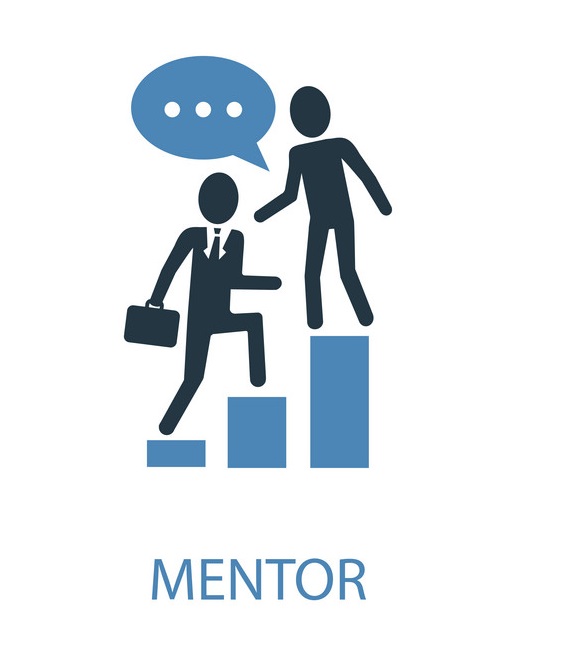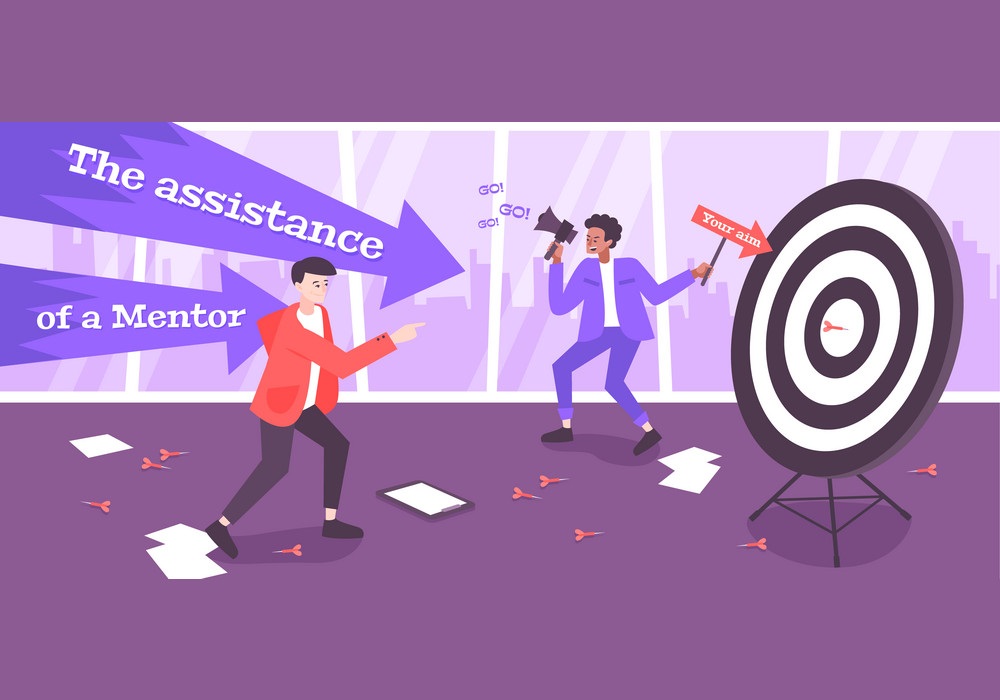What is Mentoring and Why is it Important at Workplaces?
Did you know that Steve Jobs was one of Mark Zuckerberg’s mentors and helped make Facebook the most popular social network globally?
According to Forbes, 84% of Fortune 500 companies have mentoring programs. In contrast, as per another report, 94% of employees said they would stay at a company longer if offered opportunities to learn and grow. More than 90% of small businesses admit that mentoring allows them to grow, develop and achieve their goals.
Leslie Ye, Communications Executive at HubSpot, points out -“Hearing how someone else faced a challenge is always useful for a person who is having that experience for the first time.” The article talks about the benefits of mentorship at workplaces, different types of mentoring methods, the skills of a mentor, and how mentoring relationships work.
- What is Mentoring?
- Importance of Mentoring at Workplaces
- Who is a Mentor?
- Mentoring Techniques or Models
- How Does A Mentoring Relationship Work?
- Skills of a Mentor
What is Mentoring?
Mentoring is an established partnership between colleagues to foster learning and growth at a workplace/institution. A mentor shares their knowledge, advice, and experiences to help you learn and grow. They listen to your questions and concerns, give you feedback, and offer suggestions to help you make better decisions or improve your skills. Mentoring is all about having someone you can trust and look up to for guidance and learning from their wisdom and experience.
Related Read – Leadership vs. Management: The Grand Old Debate
Best-suited Business & Management Studies courses for you
Learn Business & Management Studies with these high-rated online courses
Importance of Mentoring at Workplaces
Do you know why mentoring is important? The main benefit of mentorship is that it establishes a framework of consensus and transparent rules. This ensures the process’s quality and guarantees the relationship’s effectiveness.
For Mentees
- Develop strengths and overcome weaknesses
- Guidance on professional development and advancement
- Greater visibility and recognition within the company
- The opportunity to develop new skills and expand knowledge
For Mentors
The relationship offers reciprocal benefits for those mentors willing to invest their time in developing another professional. Some essential benefits for mentors include:
- Recognition as a subject matter expert and leader
- Exposure to new perspectives, ideas, and methods
- Professional development
- Development of their leadership styles and advice
For Organizations
For employers, investing in mentorship is a practical and cost-effective way to develop qualified emerging talent and keep their knowledgeable and more experienced employees interested and motivated.
Investing in training is helpful in –
- Develop a culture of personal and professional growth
- Inculcate a culture of professional and personal growth
- Foster professional behaviors and attitudes in the company
- Improve the leadership and coaching skills of managers
- Interest, retain and develop collaborators


Who is a Mentor?
A mentor is a qualified professional with extensive experience and knowldge to transfer his experience and knowledge to a mentee. A mentor is a model, adviser, and encourager, exerting a positive influence and projecting admiration and respect.
Mentoring Techniques or Models
There is no single way to mentor anyone. We can divide mentorship techniques based on the mentor-mentee relationship or the method involved in mentorship –
One-on-One Mentoring
One-on-one mentoring is the most popular and most personal type of mentorship. It involves only the mentor and mentee. A more experienced professional is paired with a less experienced or younger mentee in this mentoring.
Group Mentoring
One or more mentors work with a group of mentees in this type of mentoring technique. At workplaces, such mentorship models are mainly formal. Mentors usually train a group of mentees about the work processes and other related stuff. Group mentoring is a broader form of one-on-one mentoring. Here, the mentors deal with larger groups because of the lack of time or resources. It is an effective way of upskilling groups.
Peer Mentoring
Peer mentoring involves participants from the same department or role. The mentor guides the mentee based on his skillsets and experience. Peer mentoring can be one-on-one mentorship or a group mentorship relationship.
E-Mentoring
In the past couple of years, the mentorship mode has changed. It is not limited to face-to-face interactions. Organizations have adopted e-mentorship models where mentors and mentees can collaborate virtually at an agreed-upon schedule.
Reverse Mentoring
This is an interesting one. In such a mentor-mentee relationship, a younger or junior professional teaches working on a new technology or application to the senior members. Reverse Mentoring has proved to be an effective way of filling in the skill gaps. It also teaches how to adapt to fast learning opportunities.
Flash Mentoring
This type of mentorship is focused on quick one-off sessions to learn critical information or skills. Flash Mentoring is now a popular way to introduce new mentors and mentees and fosters professional networking with the leaders.


How Does A Mentoring Relationship Work?
An operational standard of mentorship is holding 1-4 monthly meetings. The sessions can go for a maximum of two hours, during which a specific topic can be discussed.
Bringing any data points, extensive reports, graphs, etc, is not required. The meeting with the mentor is a dialogue, not a negotiation; therefore, it can happen in the meeting room or even on the cafeteria terrace. It is not about making a good impression or looking good with anyone. It is rather about discussing things that are directly related to the tasks associated with the professional setup. Mentees can share their personal goals with mentors for their holistic growth if required.
Compensation to the mentor for the time spent is something that both parties decide. By principle, mentorship is not commercial consulting and is not subject to professional fees. However, organizations must understand that the mentor receives some compensation apart from the personal satisfaction of helping.
Skills of a Mentor
The skillsets of a workplace mentor include –
- Clear orientation to results
- Interest in transmitting their knowledge and skills
- Listening and synthesis skills
- Empathy and assertiveness
- Ability to stimulate learning
- Knowing how to create an environment and a relationship of trust
- Ability to use the question as a reflection tool
- Passion for people development
- Ability to give feedback on an ongoing basis
- Personal and professional commitment to helping the mentee
- Ability to challenge and open new perspectives
Conclusion
Studies show that businesses that organize formal mentoring programs build a solid and engaged work culture, with employees more inclined to learn and grow within the organization rather than leave. In the future, we can safely assume that organizations will invest more money towards creating effective mentorship programs to attract and retain top talent and generate new ideas leading to business success.
FAQs - Mentoring
How does mentoring differ from coaching?
Mentoring is more about sharing experiences and providing guidance, while coaching focuses on improving specific skills and achieving specific goals.
Who can be a mentor?
Anyone with experience, knowledge, and a willingness to help others can be a mentor. Mentoring is not limited to a specific age or profession.
What are the benefits of having a mentor?
Having a mentor can lead to personal growth, improved skills, expanded networks, increased confidence, and better decision-making.
How do I find a suitable mentor?
You can find a mentor through your workplace, professional organizations, networking events, or by reaching out to someone you admire and respect.
How often should I meet with my mentor?
The frequency of meetings can vary but usually ranges from once a month to once a quarter, depending on your needs and availability.
What should I discuss with my mentor?
You can discuss career goals, challenges, skill development, work-life balance, and any other topics relevant to your growth.
Is mentoring a formal or informal process?
It can be both. Formal mentoring programs are structured and organized, while informal mentoring can be more spontaneous and based on personal connections.

Rashmi is a postgraduate in Biotechnology with a flair for research-oriented work and has an experience of over 13 years in content creation and social media handling. She has a diversified writing portfolio and aim... Read Full Bio






